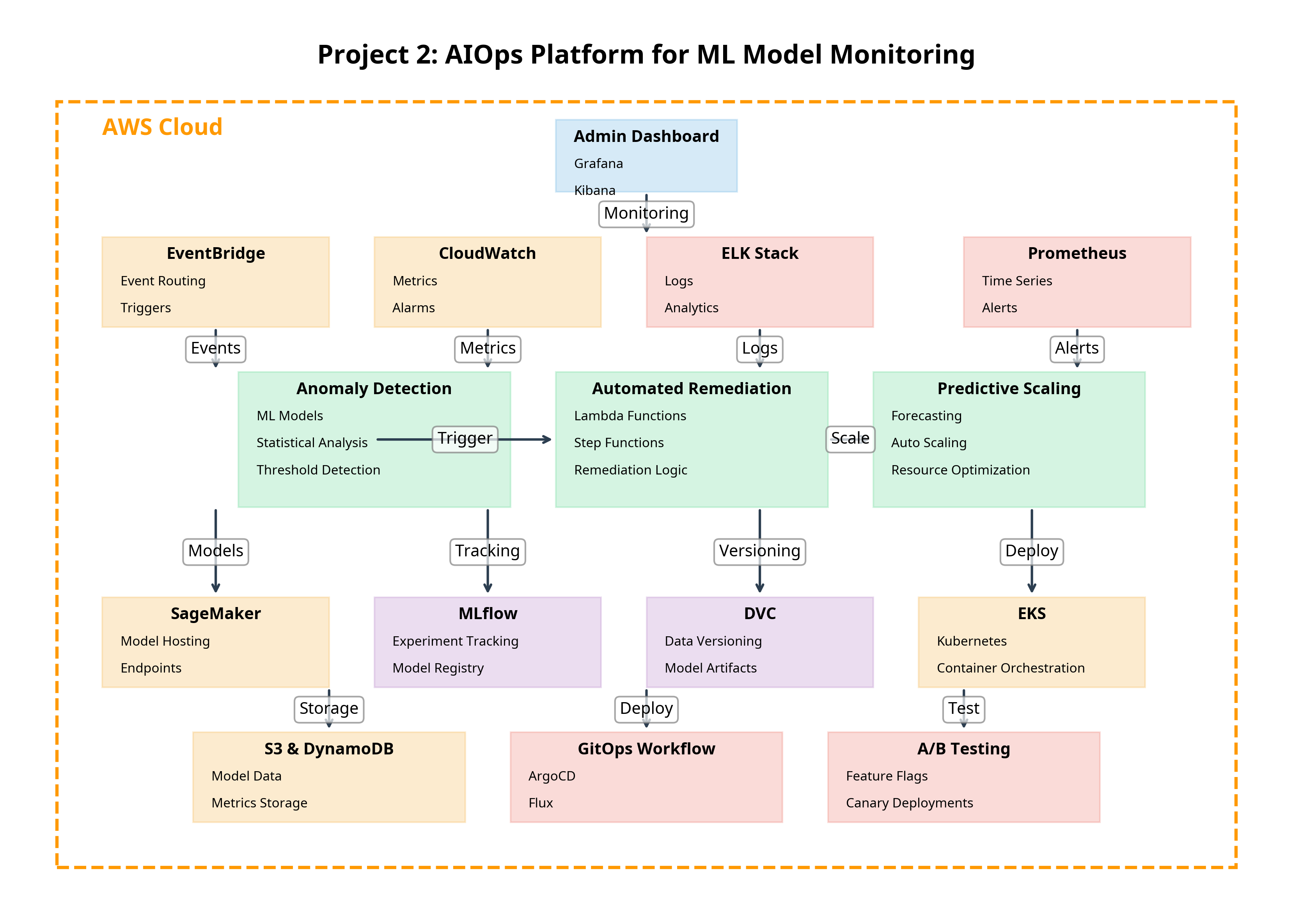Architecture

Architecture Components
- Model Performance Monitor: Anomaly detection system
- CloudWatch: Metrics collection and storage
- EventBridge: Event-driven orchestration
- Lambda Functions: Remediation actions
- Step Functions: Complex remediation workflows
- MLflow Tracking Server: Experiment tracking
- DVC: Model and data versioning
- S3: Artifact storage
- SageMaker: Model hosting and deployment
- DynamoDB: Baseline storage and configuration
- SNS: Notifications and alerts